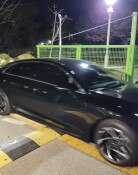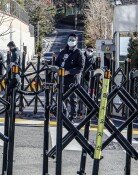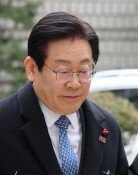Med professors: We cannot participate as interviewers if medical service void continues
Med professors: We cannot participate as interviewers if medical service void continues
Posted October. 28, 2024 09:47,
Updated October. 28, 2024 09:47
With an ongoing medical void caused by the medical community’s opposition to the government’s move to increase the medical school student quota for eight months next year, a survey showed that nine out of ten professors at medical schools across the country said that “they would not be able to participate as interviewers in next year’s college admission process if such conditions persist.”
In a recent survey conducted by the National Association of Medical University Professors and the National Medical University Emergency Response Committee on 3,077 professors from 40 medical schools across the country, 89.8% of respondents replied that “they would not be able to participate” to the question of whether they would be able to participate as an interviewer for college admissions next year.
Regarding the Ministry of Education's administrative guidance not allowing medical students to take a leave of absence (approval of conditional leave of absence), 98.7% of respondents responded that it was a 'wrong measure that violates the autonomy of schools.' Only 0.5% replied that they felt the action was necessary. Regarding the Ministry of Education's plan to reduce medical school education from six to five years, 97.8% viewed the action as “undermining medical education,” while 0.6% responded that it was a “necessary move.”
Regarding the amendment of the Ministry of Education's enforcement ordinance on medical education evaluation and certification, 96.5% of respondents said that it should be withdrawn, viewing it as a move to nullify the role of the Korea Institute for Medical Education Evaluation and Certification. On Sept 25, the Ministry of Education announced a legislation titled 'Revision of Regulations on Evaluation and Certification of Higher Education Institutions', mainly permitting one year for medical schools that failed the accreditation evaluation to make up the gap and revise the regulations to extend existing accreditation in the event of a gap in the accreditation.
여근호 yeoroot@donga.com







